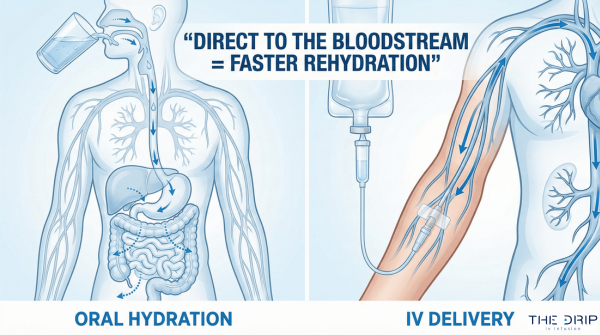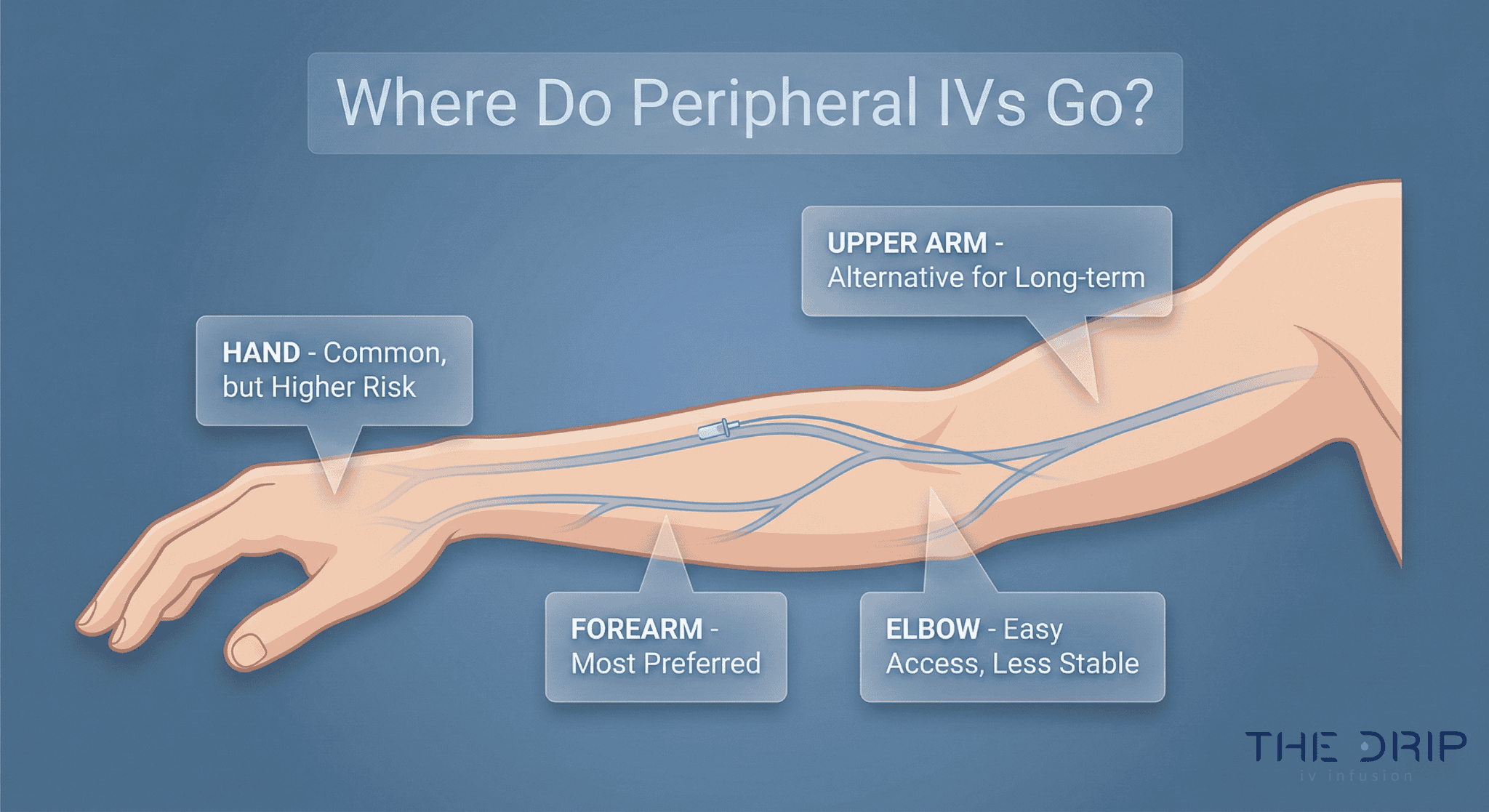Vitamins and minerals play a critical role in keeping our health in good condition. They serve as micronutrients that support bodily functions, from boosting the immune system to aiding in tissue repair and regulating hormones. Essentially, vitamins are indispensable for our overall well-being and for achieving proper functionality. But, in the world of healthcare, a discussion between IV vitamins vs oral supplementation has piqued the curiosity of many patients.
In this article, you’ll discover everything you need to know associated with IV vitamin therapy and oral supplementation. Comparing these two methods, patient consideration and practicality are essential in determining which is the most appropriate approach to vitamin administration.

Source: shutterstock.com/ Photo Contributor: Andrey_Popov
Understanding IV Therapy and Vitamins
Intravenous (IV) vitamins are micronutrients administered directly into a patient’s bloodstream, bypassing the digestive system. This ensures high bioavailability with quick and efficient supplementation, possibly allowing the vitamins to have immediate effects and higher absorption rates.
IV therapy is often the best solution for patients unable to administer or ingest their vitamins orally. Mobile IV therapy nurses in AZ can tailor your therapy to address specific conditions or deficiencies, such as fatigue, dehydration, energy boost, and recovery enhancement, among many more. However, the time duration and dosage depend entirely on your unique situation.
Moreover, the high concentration levels of IV treatment allow the vitamins to have an immediate and direct impact, leading to an almost instant relief in the body and an excellent start to recovery. The advantages of IV vitamins include the following:
Quick absorption and delivery into the bloodstream
Higher concentration and bioavailability
Potential benefits for specific conditions
Understanding Oral Vitamin Supplementation
Oral supplementation is a method through which pills first make their way into your stomach and pass through the intestinal wall. Then, the vitamins are broken down by your digestive system, and only then do they enter your bloodstream.
However, oral supplementation is subjected to a concept called the “first-pass effect”. This refers to the process of utilizing the medication before it starts working, which, in turn, lowers the concentration and absorption rates of the pill.
That’s why it’s important to consider the first-pass effect when choosing the type of pill. They come in several forms, including capsules, tablets, and liquids. While all of them have the same goal of safely administering vitamins to your body, it’s important to know the effects of each one.
The advantages of oral supplements include:
Convenience and accessibility
Varied types and forms catering to different needs
Cost-effectiveness and sustainability
Comparing IV Vitamins vs Oral
Comparing IV vitamins vs oral supplementation can be broken down into three categories. While both of them serve the same objective, they are quite distinct methods. Here are the main key points that differ IV from oral intake:
Efficiency and absorption rates
The efficiency and absorption rates between IV and oral intake differ significantly due to their distinct routes. While IV allows a direct administration into the bloodstream, oral supplementation often falls short due to digestive limitations. This greatly affects the efficiency and concentration of the vitamins administered.
Application and suitability
Since IV vitamin therapy offers rapid results and effects, it can be particularly beneficial for individuals seeking quick replenishment of nutrient levels and patients who are unable to rely on oral supplementation. Emergency conditions that require immediate attention, like dehydration, surgery, or acute illness, can also warrant the use of IV. On the contrary, oral intake is more convenient for patients with no absorption concerns. This route is much more sustainable and cost-effective for those who prefer self-administration.
However, it’s important to note that personalized considerations like individual lifestyle, health status, and specific needs contribute to determining which route is best for a patient. Consultations with a healthcare professional are essential to choose the right approach.

Source: shutterstock.com/ Photo Contributor: Numstocker
Conclusion
In conclusion, both routes serve the same purpose of administering vitamins and addressing deficiencies with distinct methods and routes. Their differences lie in the delivery methods and distinctive absorption rates. While IV vitamin therapy ensures a rapid and direct route into the bloodstream, ensuring high absorption rates and immediate effects, many issues can be treated with oral supplementation.
However, the importance of consulting with a healthcare professional cannot be overstated, as this will ensure the right approach for your specific needs. Hopefully, this article has helped you gain a better understanding of the differences between IV vitamins vs oral vitamin administration.




